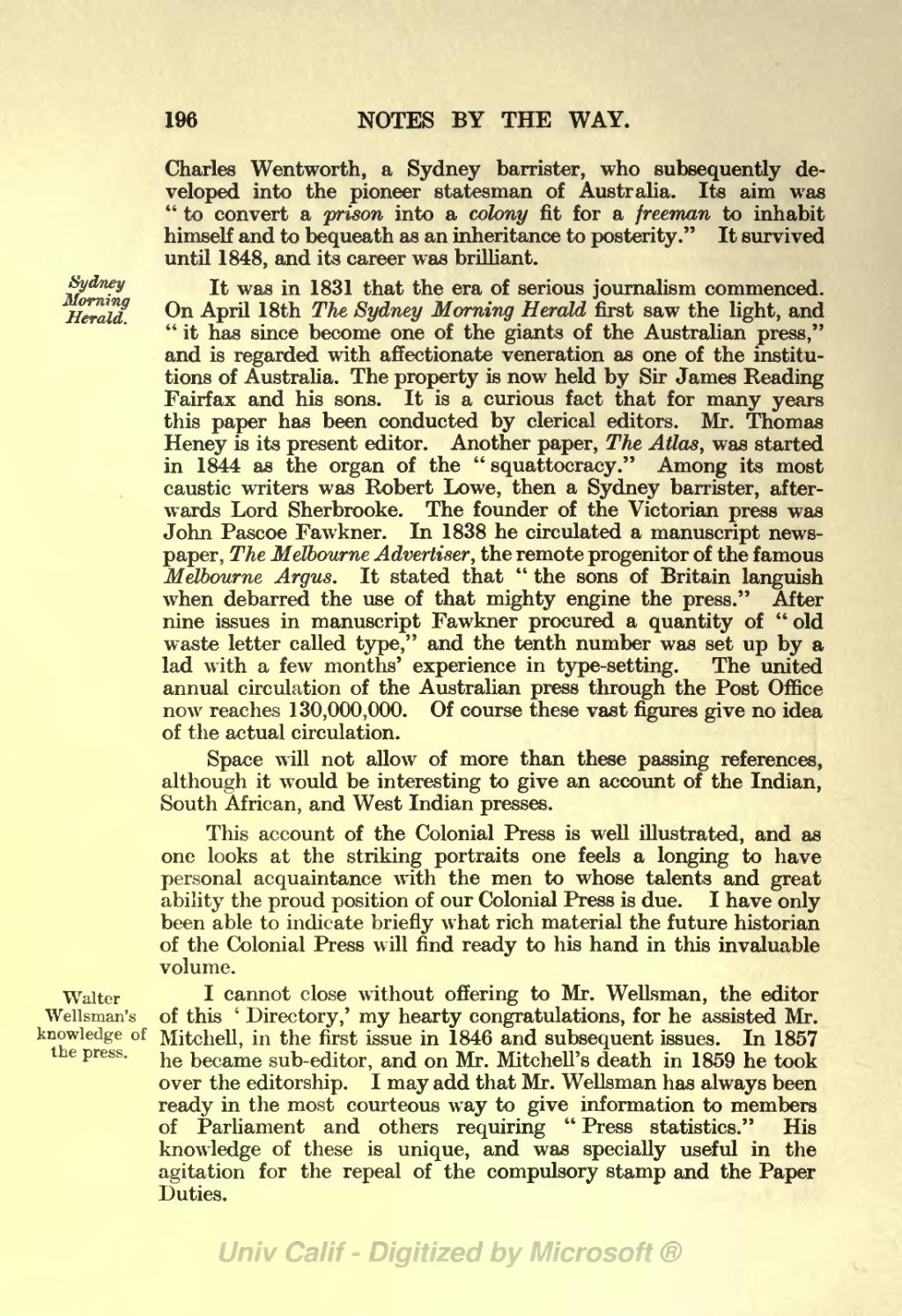196
��NOTES BY THE WAY.
��Sydney Morning Herald.
��Charles Wentworth, a Sydney barrister, who subsequently de- veloped into the pioneer statesman of Australia. Its aim was " to convert a prison into a colony fit for a freeman to inhabit himself and to bequeath as an inheritance to posterity." It survived until 1848, and its career was brilliant.
It was in 1831 that the era of serious journalism commenced. On April 18th The Sydney Morning Herald first saw the light, and " it has since become one of the giants of the Australian press," and is regarded with affectionate veneration as one of the institu- tions of Australia. The property is now held by Sir James Reading Fairfax and his sons. It is a curious fact that for many years this paper has been conducted by clerical editors. Mr. Thomas Heney is its present editor. Another paper, The Atlas, was started in 1844 as the organ of the " squattocracy." Among its most caustic writers was Robert Lowe, then a Sydney barrister, after- wards Lord Sherbrooke. The founder of the Victorian press was John Pascoe Fawkner. In 1838 he circ ula ted a manuscript news- paper, The Melbourne Advertiser, the remote progenitor of the famous Melbourne Argus. It stated that " the sons of Britain languish when debarred the use of that mighty engine the press." After nine issues in manuscript Fawkner procured a quantity of " old waste letter called type," and the tenth number was set up by a lad with a few months' experience in type-setting. The united annual circulation of the Australian press through the Post Office now reaches 130,000,000. Of course these vast figures give no idea of the actual circulation.
Space will not allow of more than these passing references, although it would be interesting to give an account of the Indian, South African, and West Indian presses.
This account of the Colonial Press is well illustrated, and as one looks at the striking portraits one feels a longing to have personal acquaintance with the men to whose talents and great ability the proud position of our Colonial Press is due. I have only been able to indicate briefly what rich material the future historian of the Colonial Press will find ready to his hand in this invaluable volume.
Walter I cannot close without offering to Mr. WelLsman, the editor
Wellsman's of this ' Directory,' my hearty congratulations, for he assisted Mr.
knowledge of Mitchell, in the first issue in 1846 and subsequent issues. In 1857
ie press. ^ k ecame S ub-editor, and on Mr. Mitchell's death in 1859 he took
over the editorship. I may add that Mr. Wellsman has always been
ready in the most courteous way to give information to members
of Parliament and others requiring " Press statistics." His
knowledge of these is unique, and was specially useful in the
agitation for the repeal of the compulsory stamp and the Paper
Duties.
�� �
